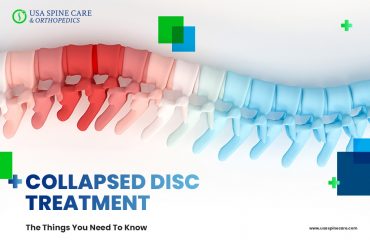

Chronic back pain can significantly disrupt your daily life. When non-surgical treatments like physical therapy and medication fail to provide relief, spine surgery might be considered. However, with advancements in medical technology, the traditional image of major open surgery with lengthy recovery is no longer the only option. Minimally invasive spine surgery (MISS) offers a quicker path to healing, but is it right for everyone? Let’s delve into the factors that determine candidacy for MISS and the specific conditions it can effectively address.
Who is a Candidate for Minimally Invasive Spine Surgery?
MISS is not a one-size-fits-all solution. While it offers numerous benefits, certain factors influence whether you’re a good candidate:
- Severity of the Condition: MISS is generally most suitable for treating mild to moderate spinal conditions. For severe cases with extensive damage or instability, traditional open surgery might be necessary for optimal results.
- Overall Health: Your overall health plays a crucial role. Pre-existing medical conditions that could complicate surgery or hinder recovery might make you less suitable for MISS.
- Anatomy: Certain anatomical variations in your spine might limit the feasibility of MISS techniques. Your spine specialist will assess your individual anatomy to determine if minimally invasive procedures are appropriate.
Common Spinal Conditions Treated with MISS
MISS offers a range of benefits for various spinal conditions. Here are some common examples:
- Herniated Disc: A herniated disc occurs when the soft cushion between vertebrae bulges or ruptures, pressing on nerves and causing pain. MISS procedures like microdiscectomy can remove the herniated portion of the disc through a small incision.
- Spinal Stenosis: This condition involves narrowing of the spinal canal, compressing nerves and causing pain, numbness, and weakness. MISS techniques like laminoplasty can create more space in the canal through minimal incisions.
- Spondylolisthesis: This is a condition where a vertebra slips forward on the one below. MISS procedures like pars repair can stabilize the vertebrae using small incisions and screws or implants.
- Degenerative Disc Disease: This is a gradual breakdown of discs in the spine, leading to pain and stiffness. MISS techniques like disc replacement or fusion procedures can address this condition with minimal disruption.
Beyond the Condition: Additional Considerations
While the type of spinal condition plays a key role, other factors influence candidacy for MISS:
- Body Mass Index (BMI): Higher BMI can make visualization and maneuvering during MISS more challenging. Your doctor will assess your BMI to determine if MISS is a viable option.
- Pain Management: If you have severe pain that significantly affects your daily activities, MISS can offer faster pain relief with its minimally invasive approach.
- Patient Preferences: Ultimately, the decision to undergo MISS is a collaborative one between you and your doctor. Discuss your goals, concerns, and recovery expectations to determine if MISS aligns with your preferences.
Consulting Your Spine Specialist for Personalized Guidance
Deciding on the right course of action for your spinal condition requires a personalized approach. A qualified spine specialist will evaluate your individual case by considering your medical history, performing a physical examination, and potentially ordering imaging tests like X-rays or MRIs. Based on this comprehensive assessment, they can discuss your candidacy for MISS, outlining the potential benefits and risks compared to traditional open surgery. Don’t hesitate to ask questions and voice your concerns throughout this process.
Conclusion: Minimally Invasive Spine Surgery Offers Hope for Effective Treatment
Minimally invasive spine surgery has revolutionized the treatment of various spinal conditions. By understanding candidacy factors and the specific conditions it can address, you can work with your spine specialist to determine if MISS is the right path to alleviate your pain and regain your quality of life. Remember, this article provides a general overview. A consultation with your doctor is essential for a thorough evaluation and personalized treatment plan.



